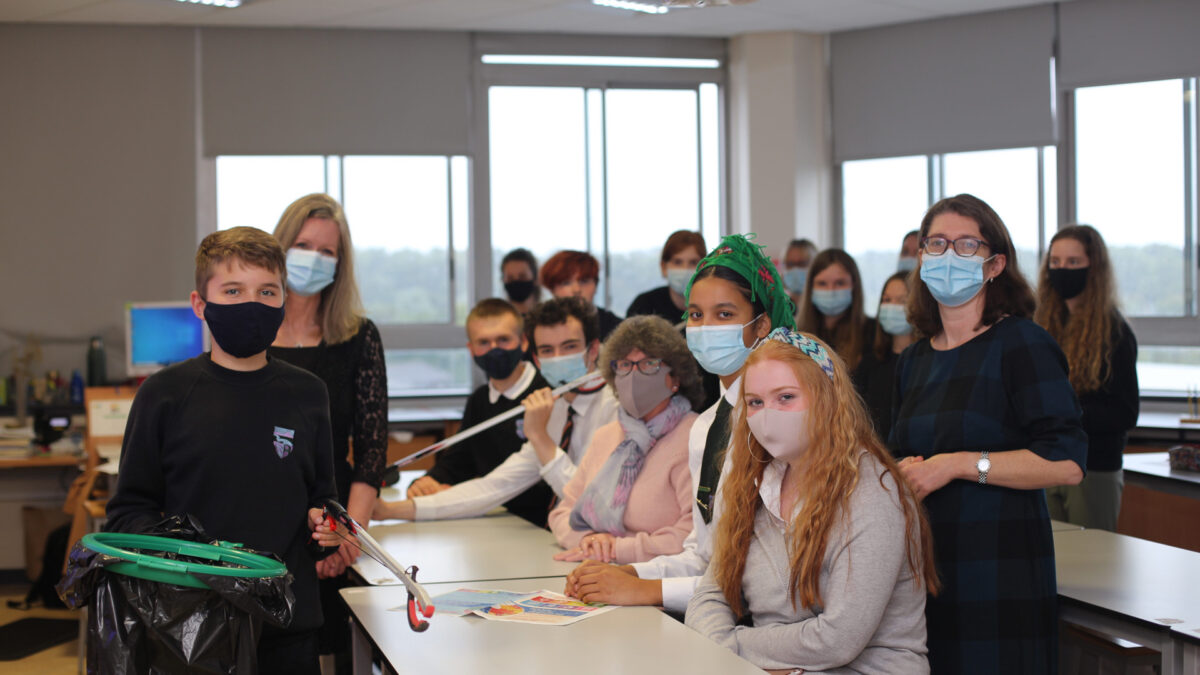Education leaders in Aberdeenshire are to discuss the approach taken to reducing carbon emissions in the area’s schools this week.
The council’s education and children’s services committee will also consider how pupils are playing a leading role in the development of the service’s sustainability and climate change strategy.
It is part of the local authority’s wider route map to 2030, which will drive focused work on climate change across Aberdeenshire.
The committee is presented with updates on carbon reduction every six months, and as the service acknowledges the impact of the pandemic, a renewed emphasis is being placed on developing actions pupils themselves can get behind.
A newly-established sustainability and climate change team made up of officers within education and children’s services aims to help young people and staff to understand the impact of climate change and the measures required to develop solutions to reduce the carbon budget.
The group is “committed to ensuring pupils’ ambitions and ideas about climate action are recognised” in the strategy and as plans develop.
Discussions with pupil groups started in September, focusing on the ongoing development of the sustainability and climate change strategy as well as shaping a new sustainability in schools policy.
The strategy aims to bring about behaviour change and the policy aims to support this by ensuring learning for sustainability is included in the curriculum, litter management and green space management is more effective, recycling is increased, the volume of waste sent to landfill is reduced and energy use is kept to a minimum.
Some of the feedback from young people so far highlights the need to keep language and presentation plain and simple, to think about how to encourage peers to ‘come on our journey’ and to explain what difference this work will make in the long-term.
So far, senior pupils from Kemnay Academy have been involved in the discussions alongside representatives from other schools in Aberdeenshire.
Asked what the main message she would like to get across to all young people in Aberdeenshire, Katie Elrick, who is in S5 said: “Be more conscious of what you’re spending and where you’re spending. Look into where you’re buying something from and think about ‘can you thrift that?’ It lowers cost and carbon.
“As a pupil voice captain we’re talking about introducing a ‘Basics Bank’ which can help with sustainability as well as supporting the cost of the school day, by providing water bottles, for example. It will mean people don’t have to go and buy drinks, and using the water fountain can increase hydration and it’s good for your health.”
Headteacher Lizbeth Paul agrees it is absolutely essential young people are listened to when it comes to making a difference.
She said: “Put simply, we can’t make the impact we’d like to in schools unless our young people and colleagues are on board. Everyone has to understand the benefit of taking the time to separate food waste and recycling, for example, or switch off lights and equipment when not in use. I’m very proud of the Eco Schools group we have here at Kemnay and I know they’ll provide a valuable contribution to this area of work across our local area.”
Councillor Gillian Owen, Aberdeenshire Council’s education and children’s services committee chairperson, said: “There could not be a more opportune time for these discussions to take place with the Cop26 international climate change conference coming to Scotland soon. We must ensure children and young people here in Aberdeenshire get the opportunity they deserve to shape actions taken locally as well as globally. I am looking forward to seeing the impact they make as our service plans develop over the coming months.”
Committee vice chair Cllr Rosemary Bruce added: “As Aberdeenshire councillors, we now consider the impact on sustainability as part of all our decision-making, through integrated impact assessments officers present alongside reports. Empowering children and young people to help us make the changes that are needed is essential.”
Click here to view the report in full.




